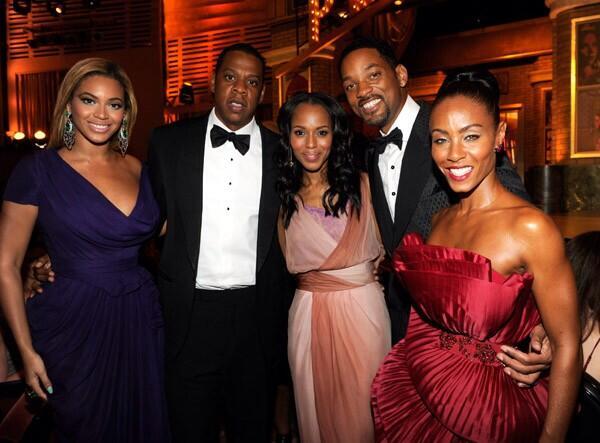Look what I found 🙂 pic.twitter.com/eQ9bNpsE5r
— Jada Pinkett Smith (@jadapsmith) January 28, 2014
Tomorrow morning, the Academy of Motion Picture Arts and Sciences will reveal its nominations for the 2017 Oscars. Hopefully its selections will be more diverse than last year’s, which generated massive backlash for the nominees’ overwhelming whiteness. Will and Jada Pinkett Smith led a boycott of the 2016 ceremony, motivated by this blatant lack of diversity. Regardless of tomorrow’s outcome, the Smiths are taking steps towards making film more diverse. This weekend, they announced a new partnership with the Sundance Institute’s Diversity Initiative.
According to Deadline, “As part of a two-year commitment, the [Will & Jada Smith Family Foundation] will support the Institute’s Screenwriters Intensive and year-round work with diverse independent filmmakers and artists.” The Screenwriters Intensive is a two-day workshop in which 10 emerging talents from “underrepresented communities” convene. “We are so grateful for the generous support of The Will & Jada Smith Family Foundation. Together, we will build momentum and awareness about the need to create a film and media landscape that reflects the full richness and diversity of our culture,”Keri Putnam, Executive Director of Sundance Institute, told the website.
The magnitude of this need for diverse screenwriters is apparent, especially when looking at the numbers. The Writers Guild of America’s most recent Hollywood Writers diversity report — which monitors the employment and earnings of women, minority, and older screenwriters — found that the overall number of minority writers working in film collectively declined (from 1731 writers in 2008 to 1608 in 2014). “For African Americans, the drop in the number of employed film writers was quite significant, 31.5 percent (from 54 writers in 2008 to just 34 writers in 2014).” A similar annual study by the Annenberg School of Media estimates that just 12% of screenwriters across 2015’s most popular films are female.
This lack of diversity among writers reflects in the kinds of stories we see on screen, and the quality of the storytelling. Some of 2016’s highest grossing films passed the Bechdel-Wallace test, a baseline gage of gender representation in works of fiction. Bad Moms, Sausage Party, Suicide Squad, Fantastic Beasts and Where to Find Them, Ghostbusters, and Captain America: Civil War all contained more than two named female characters who engage in a conversation with one another about literally anything other than a man. Yet The Magnificent Seven, The Legend of Tarzan, Sully, Jason Bourne, Central Intelligence could barely manage to give their female characters names. And recent findings from GLAAD suggest LGBTQ+ diversity in film is actually getting worse. The organization’s 2015 Studio Responsibility Index — an annual report that maps the “quantity, quality, and diversity of images of LGBT people” in films released by Hollywood’s seven largest studios during each calendar year — found that two major studios completely excluded LGBT characters from their slates. Only one trans character appeared in a major studio release that year — Warner Brothers’ Hot Pursuit — but her brief appearance “served as a punchline to laugh at when her identity is revealed,” GLAAD reported.
On television, things are looking up for writers and creators of color, who’ve largely taken it into their own hands to create diverse writing rooms — and in the process, hugely successful shows. “It’s safe to say that if it weren’t for [Shonda Rhimes, the woman behind Grey’s Anatomy and Scandal] and her eclectic casts (and writers’ rooms), we would never have gotten so many shows rich with people of color on screen and off,” Aisha Harris argued in Slate. “The 2014-15 season, which saw the premieres of Jane the Virgin, Fresh Off the Boat, Black-ish, and the juggernaut that is Empire — featuring primarily Latino, Asian, and black casts, respectively — has been championed as the ultimate manifestation of that influence.” Donald Glover hired an all-black writers room for Atlanta, the series that not only nabbed two Emmys in its first season, but got Glover a second development deal with FX for a new project.
Many studies, especially the Writers Guild of America data, suggest that film is lagging behind television when it comes to representational progress, a fact that may very well be reinforced with tomorrow’s announcement and the Academy’s choices at the February ceremony. The Smiths are taking important steps toward change, both on and off the screen. “We are honored and energized to collaborate with Sundance Institute to cultivate stories and storytellers reflective of the world at large, and we view today as the beginning of a productive, purposeful and powerful alignment with an enduring institution,” Pinkett Smith told Deadline.
Credits
Text Emily Manning
Image via WikiMedia Commons
